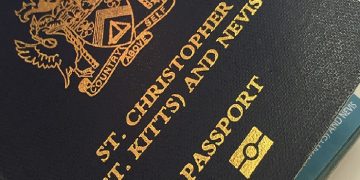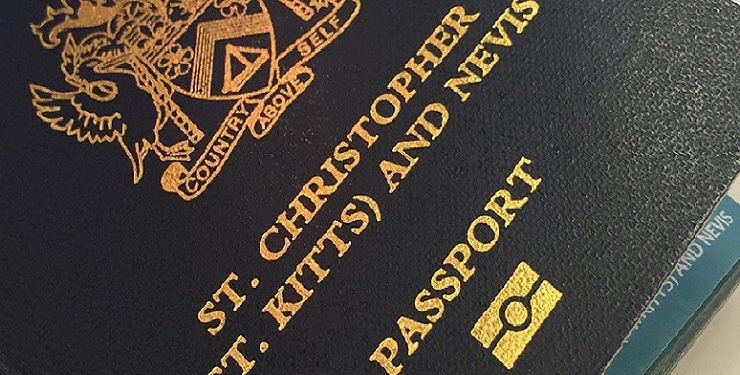BASSETERRE, St Kitts, Wednesday May 29, 2019 – Two Members of the European Parliament are seeking to have St Kitts and Nevis’ visa-free programme with the European Union (EU) revoked, over what they say are “questionable” individuals getting passports under the twin-island federation’s Citizenship by Investment (CBI) programme.
The EU signed a visa waiver agreement with St Kitts and Nevis in 2009, allowing citizens of that Caribbean nation to enter the Schengen zone for up to 90 days in any 180-day period.
But in a letter sent to the Presidents of the European Council and European Commission and other top EU officials earlier this month, Ana Gomes of Portugal and Marietje Schaake of the Netherlands expressed their concern about that visa-free access to the EU.
To support their case, they identified situations in which individuals who obtained St Kitts and Nevis citizenship through the CBI programme were found to be involved in criminal activity, and also pointed out that even Canada had revoked visa-free access for citizens of St Kitts and Nevis.
One of the three individuals they highlighted was Andrei Pavlov, a Russian suspected of being involved in the 2009 murder of Russian auditor Sergei Magnitsky who uncovered a major tax scam. The MPs said Pavlov applied for a St Kitts and Nevis passport in 2014, around the time the European Parliament was considering adding him to its Magnitsky Sanction List for his central role in the Klyuev Organised Crime Group which was responsible for organising the financial crime that Magnitsky had discovered. And they noted that since being added to that list, Pavlov has also been sanctioned under Magnitsky Acts in the United States, Lithuania, Latvia and Estonia.
“It has recently come to our attention through emails from Mr Pavlov that he engaged with several law firms – including Daniel Brantley – to obtain citizenship of St Kitts and Nevis. In his correspondence, they advertised the benefit of having visa-free travel to the European Union. It has also come to our attention that between 2015 and 2019 Andrei Pavlov has made over 70 trips to the European Union from Russia,” Gomes and Schaake wrote.
However, Pavlov never obtained the St Kitts and Nevis citizenship. He said he did not go through with the CBI application after his initial inquiries.
The UK Guardian quoted him as saying in an emailed statement: “I have never applied for or [been] granted any citizenship other than Russian. I don’t have any plans to acquire St Kitts and Nevis citizenship. I am not intended to comment whether I had these plans years ago. After December 2017 I never instructed any professional in order to obtain any foreign citizenship for myself.”
But Gomes and Schaake said Pavlov was “not the only questionable individual to use St Kitts and Nevis’ Citizenship by Investment”.
They also cited the case of Iranian born Hasheminejad Ali Sadr – currently awaiting trial in the US for a variety of charges including money laundering – who obtained St Kitts and Nevis citizenship in 2011 and got his banking licence in Malta in 2013 on the basis of that passport.
The third individual case they mentioned was that of Malaysian financier Jho Low who was granted citizenship in 2011. He was indicted in the US in 2018 for conspiring to launder billions of dollars in illegal proceeds and to pay hundreds of millions of dollars in bribes to various Malaysian and Abu Dhabi officials. His St Kitts and Nevis citizenship was revoked that same year.
“Additionally, several Iranian nationals designated by the US Office of Foreign Assets Control have managed to obtain passports issued through St Kitts and Nevis. The situation got so bad that in 2014 Canada revoked visa-free access for citizens of St. Kitts and Nevis,” the MPs added. “The US Financial Crimes Enforcement Network has also publicly stated that it believes that many foreign individuals have abused the Citizenship by Investment programme sponsored by St Kitts and Nevis.”
Expressing concern that non-EU countries, such as St Kitts and Nevis, have visa-free travel and bypass sanctions, allowing undesirable individuals to enter the EU and misuse their access for money laundering and other criminal purposes, they told the EU officials: “We urge you to consider terminating the visa free status programme with St Kitts and Nevis unless their authorities can provide full confidence that individuals, such as Mr Pavlov, are not slipping through the cracks, allowing them access to the European Union.”
After being elected in February 2015, the new Team Unity administration in St Kitts and Nevis undertook a review and overhaul of the CBI programme for which the International Monetary Fund (IMF) had congratulated the government and for which it has received awards and recognition.


















